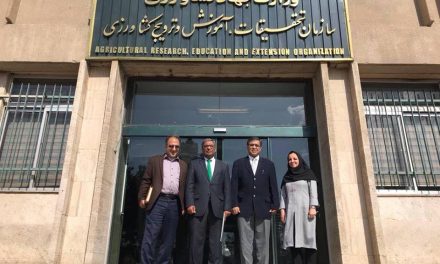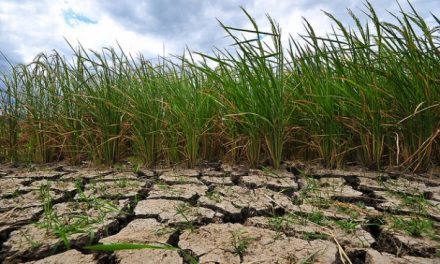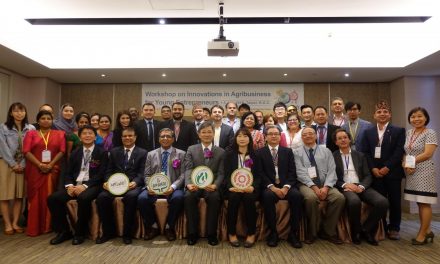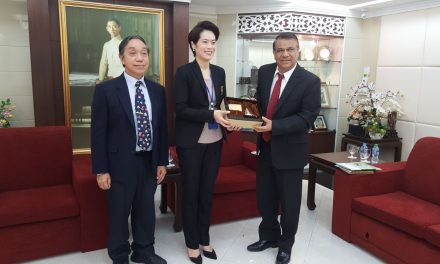APAARI Webinar with Universities: Capacity Development for Agricultural Innovation – Bringing system-wide change in Asia-Pacific through the Adoption of the Common Framework – 16 November 2017, 13:00-14.30 hrs CET
The Asia-Pacific Association of Agricultural Research Institutions (APAARI) is pleased to invite agricultural universities to a Webinar on ‘Capacity Development for Agricultural Innovation – Bringing system-wide change in Asia-Pacific through the Adoption of the Common Framework’ that will take place on 16 November 2017 at 13:00-14:30 CET (Vienna).
It is organized in collaboration with the Tropical Agriculture Platform (TAP) hosted by the Food and Agriculture Organization of the United Nations (FAO), as well as the Global Confederation of Higher Education Associations for Agricultural and Life Sciences (GCHERA) and Global Forum for Agricultural Research (GFAR).
Objectives
The Webinar will bring together resource persons and the academic community focusing on agri-food research and innovation in the Asia-Pacific region, in the dialogue on capacity development. It aims to raise awareness on the importance of developing functional capacities to unlock the potential for agricultural innovation and the role of higher education in developing the respective capacities. It will also raise awareness among professionals in higher education on the Common Framework on Capacity Development for Agricultural Innovation Systems (CD for AIS) developed by TAP and partners, its principles and tools, including functional capacities for AIS – individual, organizational and enabling environment.
Expected outputs
- Improved understanding of the Common Framework and the different dimensions of capacity development consisting of individuals, organizations and enabling environment, as well as the relationship between these dimensions.
- Raised interest in integrating the Common Framework principles, approaches and tools in higher education curricula by universities to improve system-wide capacity for change to realize the potential of innovation.
- Initiated reflection towards a mindset shift in culture of higher education organizations in the Asia-Pacific region from: (i) considering knowledge generation as a final objective, to using it as a means to achieve change; (ii) understanding of the system components to systematic understanding of the relationships between the components; (iii) consulting beneficiaries to facilitating engagement for interactive learning between innovation actors; (iv) teaching to learning; and (v) focus on individual merit and competition, to promoting teamwork and collaboration between and within organizations.
Ultimately, the Webinar is expected to enhance performance of agricultural universities in the region, to better contribute to strengthened AIS that improve the livelihoods of poor people and make agriculture more sustainable.
Target group
The Webinar targets leaders and reform managers of agricultural universities that are currently members of APAARI. However, partner universities of APAARI members can also participate. To maximize the number of participants as a means to achieving greater outreach, enhanced capacity and ultimately impact, member institutions of APAARI are encouraged to forward this invitation to their partner universities. More than one person from one institution may also register.
Registration
To participate in this Webinar, please register here by 10 November 2017. Upon registration, APAARI will provide you with more details to access the Webinar.
The schedule of the Webinar – 16 November 2017, 13.00-14:30hrs CET (Vienna) – has been prepared considering the time difference of the resource persons and the participants. You can use this tool to convert in different time zones. For those who find the timing inconvenient, APAARI will be sharing a synthesis of this Webinar, based on which we would seek your participation in other webinars with specific sub-regions/groups that we are planning to hold in the future.
For those who have registered, please the following preparation for the Webinar:
1/ Please test your connection and set-up with this self-test tool: http://bluejeans.com/111. You can use it at any time to see if your browser and computer are well configured.
2/ On November 16 – 13:00 CET (Vienna time), join us with this link: Via the computer, in any browser: https://bluejeans.com/185205698. If a meeting ID is asked, use: 185205698. As an alternative, you can join via phone:
1) Dial:
+55.11.3958.7770 (Brazil)
+1.416.900.2956 (Canada)
+33.4.84.80.12.56 (France)
+39.05.104.20256 (Italy)
+31.20.808.2256 (Netherlands)
+44.203.608.5256 (United Kingdom)
(see all numbers – http://bluejeans.com/numbers)
2) Enter Conference ID : 185205698
Webinar Agenda
- Welcome by the Moderator – Martina Spisiakova, Knowledge Management Consultant, Asia-Pacific Association of Agricultural Research Institutions (APAARI)
- Introduction – Dr. Ravi Khetarpal, Executive Secretary, APAARI
- Introduction to the Tropical Agriculture Platform (TAP) – Ms. Manuela Bucciarelli, CD-AIS Consultant, Food and Agriculture Organization of the United Nations (FAO)
- The Common Framework on Capacity Development for Agricultural Innovation Systems – Manuela Bucciarelli
- GCHERA’s contribution to Human Capacity Development – Dr. John Kennelly, Special Advisor to the Provost and VP Academic University of Alberta International, and President, Global Confederation of Higher Education Associations for Agricultural and Life Sciences (GCHERA)
- Putting the Common Framework into Practice – Nasreen Sultana, CDAIS Country Project Manager, FAO Bangladesh
- Questions and answers on the presentations from the audience – through Chat Box
- Questions to the audience
- What capacities are needed from graduates to facilitate agricultural innovation processes?
- How does your university assess capacity needs for improving the agricultural innovation system towards a transformation of the agricultural sector?
- What is the current capacity of your higher education institutions to strengthen CD for AIS, e.g. functional capacities (soft skills) thereby better serve farmers, rural communities and sustainable agriculture?
- What regional education programmes that focus on developing functional capacities are available in the Asia-Pacific region?
- What are the gaps in developing innovation capacities in your country/region?
Wrap up and Closing – Martina Spisiakova
***
About the TAP and APAARI
The TAP is playing a significant role in APAARI’s collective actions to strengthen capacity of agri-food research and innovation systems. The main focus of TAP is the development of national capacities for agricultural innovation in tropical developing countries, where the capacity gap is especially wide. By helping to bridge this gap, TAP aims to pave the way for agricultural innovations that meet the demands of its principal users – small farmers, small and medium-sized agribusinesses and consumers. APAARI supports these efforts through facilitation of knowledge management, networking and collaboration, capacity development, and advocacy, placing special emphasis on participation and engagement of women and youth, as well as small countries and institutions in Asia and the Pacific.




